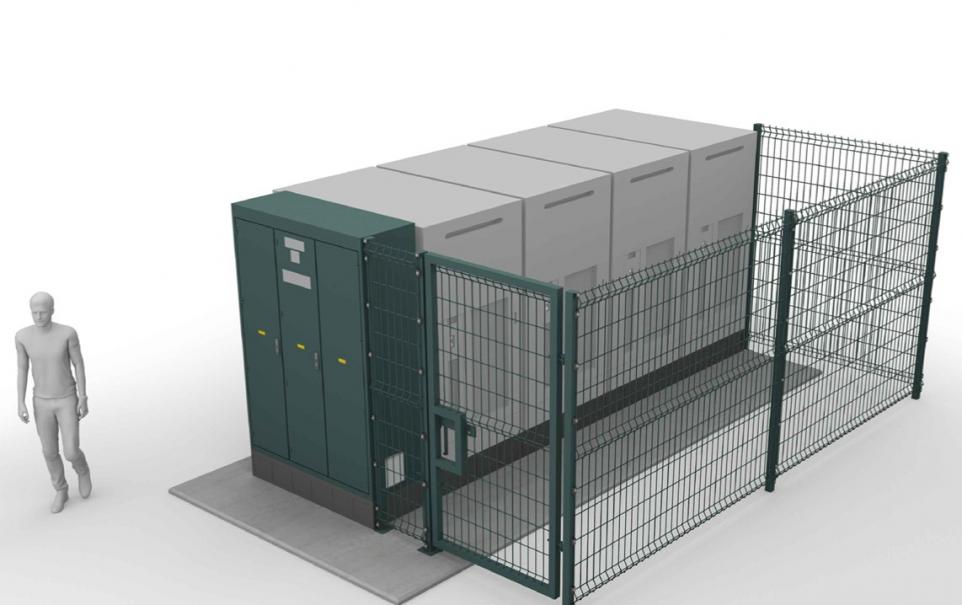Climate
Powering the Future: The Impact and Benefits of Energy Saving Grants

IN an era where environmental concerns and energy efficiency are at the forefront of societal goals, Energy Saving Grants emerges as a pivotal player in transforming homes across the UK. Their mission is clear: to make energy efficiency accessible and affordable for everyone. By leveraging 100% government-backed funding, they offer a multitude of grants designed to reduce energy consumption, lower household bills, and mitigate environmental impact.
Understanding Energy Saving Grants
Energy Saving Grants provides access to various government schemes aimed at improving energy efficiency in residential properties. These grants cover a wide range of upgrades, including:
- Insulation Solutions: Proper insulation is crucial for maintaining a stable indoor temperature, reducing the need for excessive heating or cooling. Energy Saving Grants offers funding for cavity wall insulation, loft insulation, and solid wall insulation, all of which significantly cut down energy wastage.
- Boiler Upgrades: Old, inefficient boilers are a major drain on energy resources. The Boiler Upgrade Scheme helps replace these with modern, energy-efficient models, ensuring that heating systems are both effective and economical.
- Renewable Energy Installations: Solar panels and heat pumps are excellent alternatives to traditional energy sources. By harnessing renewable energy, households can reduce their reliance on fossil fuels and lower their carbon footprint.
The Process: Simple and Hassle-Free
One of the standout features of Energy Saving Grants is the simplicity of their process. It begins with a free, no-obligation consultation where experts assess your property and determine your eligibility for various grants. This personalized approach ensures that you receive the most suitable recommendations for your specific needs.
Once eligibility is confirmed, Energy Saving Grants handles all aspects of the application process, from paperwork to coordination with approved installers. This comprehensive service guarantees that the journey from application to installation is smooth and stress-free.

Why Energy Efficiency Matters
The importance of energy efficiency extends beyond immediate financial savings. Here are some key benefits:
- Financial Savings: Energy-efficient homes require less energy for heating and cooling, leading to substantial reductions in energy bills. Over time, these savings can amount to significant financial relief.
- Enhanced Comfort: Homes that are well-insulated and equipped with efficient heating systems maintain more consistent temperatures, enhancing overall comfort for residents.
- Environmental Protection: Reducing energy consumption directly impacts the environment by lowering greenhouse gas emissions. This contribution is critical in the global effort to combat climate change and preserve natural resources.
Real-Life Impact: Success Stories
The transformative power of Energy Saving Grants is evident in the myriad success stories from across the UK. For instance, a family in Leeds received a full insulation upgrade through the Great British Insulation Scheme. This not only reduced their annual energy expenses by 30% but also made their home considerably warmer during winter.
In another case, a landlord in Glasgow utilized the Boiler Upgrade Scheme to replace outdated boilers in his rental properties. This upgrade resulted in happier tenants, lower maintenance costs, and increased property value.
Looking Ahead: A Sustainable Future
The impact of Energy Saving Grants goes beyond individual homes. By promoting widespread adoption of energy-efficient practices, they are helping to build a sustainable future for all. As more households take advantage of these grants, the collective reduction in energy consumption will lead to a substantial decrease in national carbon emissions.
For homeowners, tenants, and landlords alike, the opportunity to make a difference starts with a simple step: exploring the options available through Energy Saving Grants. Visit Energy Saving Grants to discover how you can contribute to a greener, more efficient future while enjoying the immediate benefits of reduced energy bills and enhanced home comfort.

Climate
Breaking down barriers between finance and industry in offshore renewables sector

EARLIER this week, Marine Energy Wales brought together senior representatives from national and devolved finance institutions with developers, ports and supply-chain companies operating across Wales’ offshore renewable energy sector for a dedicated finance roundtable in Pembroke Dock. Attendance was limited to premium MEW members to allow for frank, focused discussion.
The session was intentionally designed to be different.
Rather than relying on formal presentations or sales pitches, the roundtable created a facilitated, closed-door space for open dialogue. Finance organisations were able to explain clearly how they operate, what types of projects they can support, and where constraints still exist. Industry participants, in turn, set out the real-world challenges they are facing across tidal energy, floating offshore wind, port infrastructure and supply-chain development.
What emerged was more than information sharing—it was a clearer, shared understanding of how decisions are made on both sides.
From siloed conversations to shared problem-solving
A consistent theme from the discussion was that significant public and institutional finance is now available to support clean energy projects. However, navigating that landscape remains complex, particularly for early-stage developments, smaller supply-chain businesses and emerging technologies.
By bringing the right people into the room at the same time, the roundtable helped to:
- demystify how different finance bodies assess risk, scale and project readiness
- highlight where policy ambition, market signals and investment criteria are not yet aligned
- identify opportunities where better sequencing and coordination of funding could unlock progress
- establish direct relationships that will support follow-up conversations beyond the room
The discussion also surfaced where gaps remain. In particular, the need for clearer market signals and more tailored support for tidal stream and other early-stage marine technologies was repeatedly raised. These are challenges that are difficult to address in isolation, but far more productive to tackle collectively.
The value of convening
For Marine Energy Wales, the roundtable reinforced the importance of our role as a neutral convener for the sector.
Members consistently tell us that access to finance is one of the most significant barriers to progress—not only in terms of capital availability, but in understanding how to engage effectively with funders. At the same time, finance organisations are keen to deepen their understanding of project development timelines, technology risk and the scale of Welsh supply-chain ambition.
Creating space for those conversations is where real value is added.
This is not about Marine Energy Wales brokering individual deals. It is about building shared understanding, reducing friction, and helping to align finance, policy and industry around credible pathways to delivery.
What comes next
This roundtable was not a one-off.
Marine Energy Wales is committed to continuing this work, developing structured and trusted forums where finance, industry and government can engage early, openly and constructively. As Wales moves from ambition to delivery in offshore wind and tidal energy, these relationships and conversations will be critical to ensuring projects are investable, deliverable and anchored in Welsh economic benefit.
We will continue to work with our members and partners to identify priority issues, convene the right voices, and help turn opportunity into tangible outcomes on the ground.
Climate
Wales takes another giant leap towards becoming a zero-waste nation

THE LATEST figures are in, and they’re impressive – Wales has pushed its recycling rate up to 68.4% in 2024-25, climbing from 66.6% the previous year. It’s a remarkable turnaround for a country that was recycling just 5% of its waste before devolution.
The boost comes as Wales’ new workplace recycling rules begin to show real results. Businesses, public sector organisations and third sector workplaces across the country are now required to separate key recyclable materials, and it’s making a measurable difference.
Local authorities collected an additional 8,187 tonnes of recyclable material from workplaces this year – that’s a 42% jump compared to last year. Meanwhile, residual waste from workplaces has dropped by 15.8%, meaning thousands of tonnes of valuable materials are being fed back into the economy rather than burned or buried.
The landfill figures tell their own story – just 0.7% of Wales’ waste ended up in landfill in 2024-25, compared to 95% before devolution.
Deputy First Minister Huw Irranca-Davies, who has responsibility for climate change, said: “We continue to build on Wales’ already world class recycling. This shows the huge shift in attitudes over the last few decades; recycling is now a part of who we are as a nation.”
He added: “I’m proud of every person in Wales who has played their part in getting us to where we are today – in our homes and now in our workplaces too. Thank you for joining this collective effort.”
Wales currently sits second in the world for recycling – leading the UK and trailing only Austria in global rankings published by Eunomia Research and Consulting and Reloop in 2024. More than half of Welsh councils hit the 70% recycling target, and over 90% improved their rates year-on-year.
The Deputy First Minister said: “Our recycling track record is something to be proud of as we continue taking action to tackle the climate and nature emergency and grow the green economy. But let’s not be complacent. Being number one in the world for recycling is within our grasp if we keep up the momentum.”
Business
Pembroke Dock battery box energy scheme is approved

FURTHER micro energy storage facility ‘battery box’ schemes in Pembrokeshire have been considered by county planners, with one backed and one withdrawn by the applicants.
In two separate applications to Pembrokeshire County Council, AMP Clean Energy sought permission for micro energy storage projects on land at Waterloo Industrial Estate, Eastern Avenue, Pembroke Dock, and land between Steynton Road and Sheffield Drive, Milford Haven.
A supporting statement accompanying each application says: “AMP Clean Energy is developing Battery Boxes across the UK to provide a low carbon, flexible and de-centralised store of electricity that benefits local communities, businesses, and homes.”
It says the battery boxes import electricity from the local electricity network when demand for electricity is low or when there are high levels of renewable energy available, exporting it back during periods of high demand to help address grid reliability issues prompted by an increase of intermittent (wind and solar) generation.
AMP Clean Energy says it is developing up to 1,250-plus Battery Boxes in the UK over the next three years and, to date, has received planning consent for more than 80 such schemes.
It says each box, which takes up roughly two car parking spaces, stores 800kWh of electricity, giving the potential to power 200 homes for four hours where there is a supply disruption.
The battery box schemes are part of a raft of applications in the county.
AMP was previously granted approval for schemes on land between King Street and Meyrick Street, Pembroke Dock and land in between Castle Quarry and Haven Court, Pembroke.
AMP Clean Energy was also recently granted permission for micro energy storage projects at on a verge at the Bridge Innovation Centre, Pembroke Dock, and land to the south of Withybush Road, Withybush Industrial Estate, Haverfordwest.
However, a scheme for a micro energy storage project on land at Fishguard Leisure Centre Car Park, near Ysgol Bro Gwaun was refused by the council’s planning committee late last year.
That scheme was refused, against an officer recommendation of approval, after concerns were raised including being in “an unsafe, unsustainable and unnecessary location,” and the “nightmare scenario” of a fire as children were leaving the school, with was disputed by AMP’s agent.
The latest Pembroke Dock application was conditionally approved but the Milford Haven scheme has been withdrawn.
-

 Health3 days ago
Health3 days agoConsultation reveals lack of public trust in health board
-

 News4 days ago
News4 days agoCaldey still unsafe, survivors warn — despite Abbey’s reform claims
-

 Community4 days ago
Community4 days agoPembrokeshire students speak at national Holocaust Memorial Day event
-

 News6 days ago
News6 days agoWales warned against single police force as Lib Dems cite Scotland ‘lesson’
-

 Crime6 days ago
Crime6 days agoMilford Haven man appears in court charged with burglary and GBH
-

 Business6 days ago
Business6 days agoDuke of Edinburgh Inn in Newgale on the market for £325,000
-

 Business6 days ago
Business6 days agoFormer Halifax in Haverfordwest could soon become new high street nail bar
-

 Local Government6 days ago
Local Government6 days agoPembrokeshire council house rents to increase this year

























